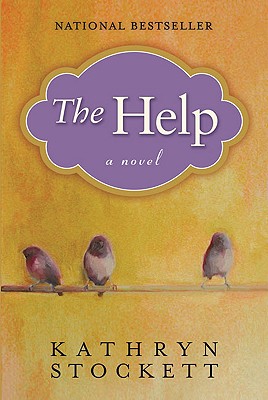The Help chronicles the story of the black housekeepers who worked for white families in Jackson, Mississippi during the most intense times of the Civil Rights movement. Jackson seemed a world away from the activism that is occurring all over the country, tucked into its own social hierarchies. One of the main characters nicknamed Skeeter comes from a white family. Skeeter, now out of college with no husband, feels her singleness as she watches her friends from high school get married, purchase homes and have children. She struggles as she wants to have these things, but at the same time has aspirations and ideas that surpass her friends' contentment with where they are in life and the pity they feel for her for not having attained those same things yet.
Through a course of events, Skeeter attempts to put her dream of writing into reality by writing the stories of the black housekeepers in the towns. Two of those women, Aibileen and Minny, make up the other two narrative voices. Skeeter's eyes are opened to the reality and deep seated racism that exists in her hometown, in the homes of her friends, her boyfriend, her parents and herself. Two big ideas were running through my mind as I read this book.
One, Skeeter's friends drove me crazy (as I think they were supposed to). Adult women acting like catty teenagers rallying around the most popular girl is disgusting. I will never fully understand the spell that happens to girls who desperately want approval from the girl who has proven herself to be the meanest, but also the most powerful. Watching this in the lives of my students is heartbreaking. Watching this in the lives of grown women is infuriating. Skeeter's best friend from high school is painted as the archenemy, doing whatever it takes to maintain the lines of racism, privilege and power in Jackson. To go against her is to throw oneself into social isolation. It was interesting to see how Stockett crafted the development the these female characters.
The part that I enjoyed the most in the story was watching the unlikely friendships form between Skeeter and the women she interviewed in order to write their stories. Though at first uncomfortable and risky for all parties involved, evening interviews at Aibileen's house over coffee and tea was when barriers began to break down. These women were able to see each other as people with stories and struggle to the point where Skeeter felt more comfortable on "the other side of town" than she did on her own. I was reading Three Cups of Tea at the same time as The Help and I did not expect them to overlap in this way, though it underlines the fact that taking the time to know people is the best way for healing and peace. And true friendship.

1 comment:
Don't stop posting such themes. I love to read articles like that. Just add more pics :)
Post a Comment